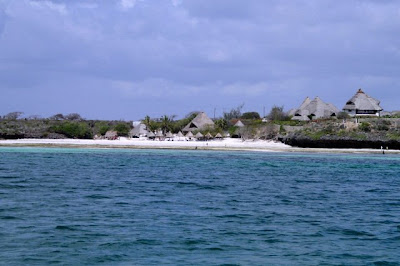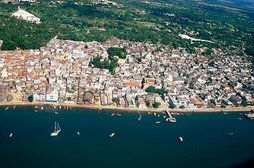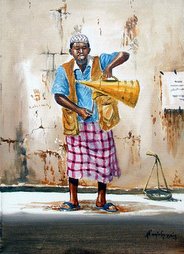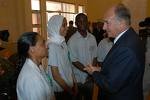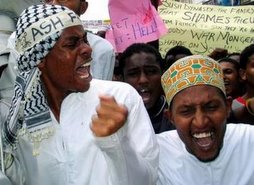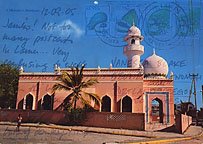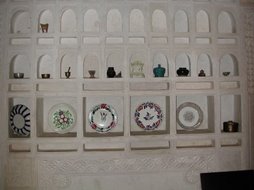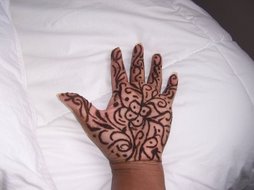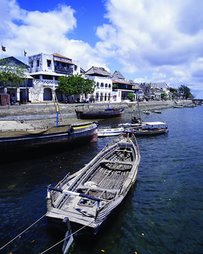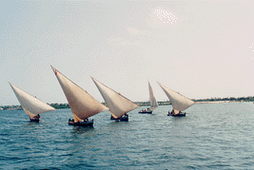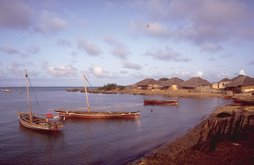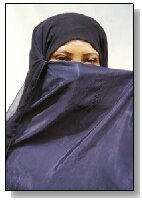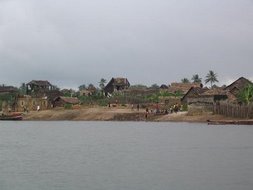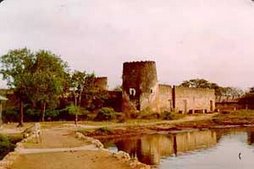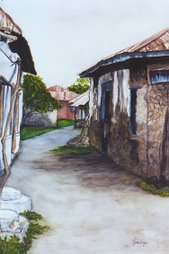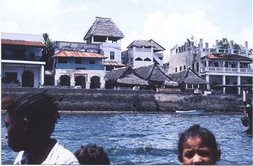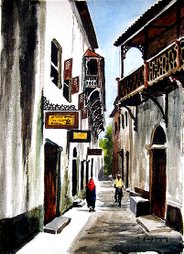By Omar Ahmed Ali
______________________________
ON the face value, last Thursday’s commentary by the internationally acclaimed writer Mr. David Mailu titled: “Chotara nation of Kenya, Waswahili” (KT February, 23, 2006) was an open insult to the Coastal Swahili community. But in reality the writer was only expressing what is the prevailing (although erroneous) views held dear by a good number of Kenyans—not a majority, but not a tiny minority, either—towards the Swahili people also known as Waswahili.
Since the writer went to an open ground of expressing the views of Kenyans towards Waswahili, here are some perceptions which have remained embedded in the Kenyans minds:
The Kamba people: They are dirty and deceitful. Their women do not get sexually satisfaction from a single partner hence they lead in the prostitution circles. Their men don’t know how to dress well—when a person is badly dressed in a mismatched clothes and colours, the comments they get will be, ‘you dressed like Mkamba’.
The Luhya community: are more in interested in aspiring to being cooks, farm workers and house help in their lifetime career goals.
The Kikuyu community: The number one thieves in the country, hence the wealthiest community in the country. My question here comes; do these views have any iota of truth in them? Of course not, but they are what they are. Everything is everything.
Any one can take advantage of the freedom of press and freedom of expression to say or write whatever they like about any one within the limits of the laws. The writer took this advantage and was indeed free and went on to bark against the Waswahili for whatever it was worth to him. Perhaps he picked a topic to create some sort of controversy in order to revive his failing writing career et al.
Responding to the prejudiced commentary may not have been necessary, however when the writer crossed what many may consider the red line—either deliberately, naively or intentionally—then there was compelling need to do a rejoinder. The red line is when the writer claimed amongst other things that Kenyans who covert to Islam do so with the hidden agendas of becoming criminals—terrorists for that matter. The writer noted: “It is a jungle in which you can hide and become a successful criminal, and even become terrorist paid by a Dubai based cell of Afghanistan Taliban bin Laden organization.”
Associating Muslims and Waswahili with terrorism is taking the freedom of press and freedom of expression too far and is unacceptable. People didn’t just start to convert to Islam since the coming of the now deposed Taliban rule in Afghanistan or the emergence of the terrorists’ organisation, Al Qaeda in 2001. The religion has been in existence for more than 1,400 years and is considered as one of the fastest growing religions in the world, if not the fasted. Non-Muslim Kenyans have been converting to the Islamic faith even before independence; religious conversions and switching of religious affiliations did not start just the other day as was the impression of the commentary. New Muslim converts have and continue to do so willingly without any form of coercion or monetary enticement as is the case with other religious faiths and or denominations.
It is preposterous for any one to assert that new Muslim converts, particularly those in Kenya, abandon their respective tribes because Islam, as the writer notes: “ is a world that has often offered sanctuary to persons escaping from the pressure of their own individual tribes.” What one fails to understand here is that the Kalenjins, Maasais, Kurias or Boranas don’t change their tribes when they covert to Christianity, why should they change their respective tribes (and take on Uswahili) once they convert to Islam.
Islam is a religion and a way of life. One of the beauties of Islam is that the faith’s adherents wherever they are—of whatever tribe, colour or race—apply the teachings in guiding their daily lives. Now because all Waswahili happen to be Muslims, the community is interwoven to the religion, hence Uswahili (Swahili culture and ways of life) and being a Muslim are taken as one and the same thing.
Take it further and a problem arises in the country where people either deliberately or inadvertently confuse and connect Islam or Muslims to Arabs and Waswahili. Which of course is wrong, because majority if not all the Somali community are Muslims. Why then no one is making the blatant mistake of confusing all Muslims to WaSomali. It makes one wonder, if the tie of Waswahili and Arabs to Islam is intentional with ulterior motive behind or not.
For instance, while Islam teaches their women to cover most of their body parts, it does not instruct or order them to cover with a black “bui-bui” like the ones commonly worn by Waswahili women. The Somali women do cover their bodies as per the Islamic teachings but they do not wear the bui-bui. So is the case with other Muslim women in other societies or communities like in India, Malaysia, or Nigeria, and Tajikistan to name but a few.
Internationally the interweaving of the religion to Arabs continues albeit erroneously. Many people confuse Muslims and make them synonymous with Arabs, when Arabs are not even the majority of the world Muslim population. Although the Islamic religion originated in what is today the Kingdom of Saudi Arabia, the reality is that Islam is not restricted to the Arabic race and to Waswahili. Nor is Islam a racial or tribal community as is the case with Judaism. Because of the ignorance of some people, I have highlighted some hard facts that could perhaps assist in erasing such wrong mindsets regarding Islam and Muslims:
With a population of more than 128 million people, fifty-percent being Muslims, Nigeria has more Muslims than the population of Kenya. All the Nigerian Muslims are black Africans, not Arabs or Waswahili.
The most populous Muslim country in the world is not Saudi Arabia or Egypt but Indonesia with a population of 241 million people, eighty-eight-percent Muslims—212 million Muslims.
Majority of the people are on the assumption that the Israel/Palestinian question is more of a Jewish and Islamic conflict as opposed to the question of political freedom and national independence for the Palestinian people (both Christians and Muslims), and has nothing to do with any religious conflicts. Waswahili are people who were the first to be civilised (ku’staarabika) through their Islamic faith. For instance in order to observe the five times daily prayers, one has to keep oneself clean, dress appropriately. Muslim women’s bodies are not for show or display they have to cover them properly. Now the non-Waswahili Muslims when they are practising Islam and follow their faith’s teaching they are not turning into Waswahili but are being true Muslims by kujista’arabisha. If these Muslims refuse to speak their native languages and stick to Kiswahili, isn’t that one of their individual rights to do so? Isn’t Kiswahili our national language?
The very reason why those who embraced Islam; Wanjiku, Mutua or Kamau do not become Waswahili is because Islam is not a tribe. A religious community is never a racial or a tribal community. I am tempted to ask the writer: why didn’t he, after embracing Christianity, become Mzungu having been baptised and given an English sounding name and speaks the Language of the Queen. If he did not become a white man, then why would the former Wanjiku or Mutua when they embraced Islam and changed their first names to Khadija and Abdalla respectively and adhere to the Islamic dress code by wearing a bui-bui (as is the case with the Khadija) and or kanzu and kofia (as is the with some men) automatically become Waswahili?
Although it is indeed difficult to separate Uswahili and Uislamu (the act of being a Muslim) but being a Muslim does not make one Mswahili (single member of the Swahili community).
Wapwani vis-a-vis Waswahili:
There is a fundamental mistake people make by confusing the Kenyan Muslims, Waswahili and the other Coastal people (Wapwani). Although the province is predominately Muslim, there are a sizable number of indigenous non-Muslims Wapwani—from the populous Mijikenda to the Pokomo of Tana River to the Taitas and Tavetas of the upper Coast section.
The marginalisation of the Coast is not restricted to the Swahili people, but to all the indigenous Coastal people perhaps with an exception of the Taitas and Tavetas who are made to believe that they are not like other Wapwani.
Coast remains the only province where the natives do not have title deeds for their ancestral lands, and the region’s lands in owned mainly by people from upcountry. An excellent example is the Kenyatta family owning a sizable fraction (if not a quarter) of the province’s land. Or when it comes to employment, the unemployment rate in the province is double that of the national standard. In Education, Coast being the only region, save for the sparsely populated North Eastern province, without a full-fledged university, or even a university college. Utalii College was deliberately established in Nairobi as opposed to the province where the heart of the country’s tourism is mainly located.
Who doesn’t know that the reason the province has a mere small percentage of educated elite is as a result of open discrimination. Government sponsored education scholarships in the ’60s, ’70s, ’80s, ’90s and now in 2000s were not allocated to Wapwani but went to all other regions whose respective native senior bureaucrats and politicians lured them to. Why would Mutahi Karega, for instance, give a scholarship to a boy from Faza, instead of a kid from Mount Kenya region? During former President Moi’s regime a majority of kids from the Rift Valley were the beneficiaries of government scholarship et al. But that is not the issue here.
The issue of Wapwani been marginalised and transparently discriminated is not necessarily restricted to the Waswahili. Wapwani are being fought from every angle through sectarian politics. Let us take the last few years and see how the war against Wapwani was waged. When the Matuga MP Chirau Ali Mwakwere, a Coastal but not Mswahili, was the Minister for Foreign Affairs, the ministry was the focus of all the media houses. Certain journalists from all three major dailies took upon themselves to be the public watchdogs on the ministry. They supposedly used to conduct “regular investigative journalism” and come up with baseless but well crafted damaging reports on the ministry and the minister.
When Kenyans were held hostage in Iraq, their then continued captivity was kept as “main news” almost everyday and various commentaries were written in that regard. These journalists ganged up and were “informing” Kenyans that the ministry was not doing anything to secure the hostages’ release. It was an open secret that the minister had dispatched the Riyadh-based Kenyan envoy to handle the diplomatic niceties to secure their release. Truth be told, there was not much the Kenyan government could have done since Kenya had and still has no military presence in the war-torn Iraq. The worse was yet to come.
When Mwakwere, a veteran diplomat, was given to understand that the hostages had been released and went on air to announce the good news to the families of the hostages and the rest of the country, the press claimed that the minister made a fool of himself because the hostages had not been released as perhaps was thought. My question here is this. Why would Mwakwere issue a statement on “the release of the hostages” if he was not assured that the information he was given was credible? What would have been Mwakwere’s personal and or political gain to lie to Kenyans, let alone to the families of the captives?
No one wants to answer this question, because answering the question will tell them that Mwakwere was merely doing his job the way he knew it. But when an upcounty politician such Kabete MP Paul Muite calling a press conference and making wild and reckless allegations against the American and German envoys, here is what Mr. Gitau Warigi of the Nation Group had to say: “Kabete MP Paul Muite has always sought to cultivate the posture of a serious operator who avoids making reckless outbursts. That is why he looked completely out of character when he called a press conference last week to claim that the American and German embassies were plotting, together with Mr. Raila Odinga, to remove President Kibaki from power”. But we are told Mwakwere made a fool of himself and not Muite. Then there were the Koinange street lies and fabrications on the personal credibility of the minister cooked by two media houses that have since been sent to court by the minister.
Now the Foreign Affairs ministry is headed by a non-Coastal politician, the media’s radar has shifted away from it. There are two Kenyan hostages held in Iraq as we speak. We don’t hear anything with regard to the efforts of securing their release. The matter has been left to be handled by a low level ministry official and the so-called investigative journalists see no reason to bring up the matter to the attention of Kenyans. Ukabila and sectarian discrimination at the highest level, why bring the matter when one of their own is in-charge in the ministry. In fact some of the “war against Mwakwere” journalists from the local dailies are now coming out in defence of the country against the Nairobi-based diplomats, something they used to cheer every time the foreign envoys insulted Kenya and its leaders. One may be tempted to ask is it patriotism or tribalism at play here?
Now the Matuga MP is the Transport Minister, the focus of the biased press has since shifted from Foreign Affairs to where, you guessed it—Transport. For instance, let us take the case when Mwakwere appointed a veteran port management professional to take over as the new Managing Director at the Kenya Ports Authority. There was an onslaught on Mwakwere with various commentaries and editorials (by the three dailies) all opposing the minister’s move simply because the individual hailed from the Coast and is a Muslim. Two dailies in their separate editorials went to the extent of asking for the removal of ministers as the appointing authorities in the parastatals management.
It has since emerged that three ministers, namely Newton Kulundu (Labour), Henry Obwocha (National Planning) and Kivutha Kibwana (Environment and Natural Resources) all have separately appointed their tribesmen (although all qualified), as Chief Executive Officers for three different parastatals falling under their respective dockets. Iin its front page story titled: “Government has made tribalism acceptable practice” one of the dailies crafted the report in such a style that the blame is mainly shifted to the government as opposed to the individual ministers—cleverly lessening the effects of the three ministers’ tribal based appointments. Not a single editorial has been written against the conspicuous tribal appointments. This is unlike what we saw during the appointment of Abdalla Hemed Mwaruwa for the KPA top position. Is it because the ministers are not Wapwani, hence they need protection?
For obvious reason the youthful Mvita MP Najib Balala had been a darling of the press because he has allowed himself to play second fiddle to some Liberal Democratic Party (LDP) politicians at national level. Unlike Mwakwere who on the onset refused to be an errand-person of the LDP luminaries who automatically became a marked person by the press. Now that the former National Heritage minister has declared his interest to vie for LDP presidential ticket his fortunes are about to change for him. Let us wait and see how the press will start to trash him. I am sure our illustrious investigative journalists are already burning the midnight candles (due to the power rationing) looking for dirt on Balala.
The issue is not Waswahili per se; it is the bigotry on Wapwani because of religious and sectarian discrimination which is assisted by the powerful press. The overt campaign is first and foremost waged against Wapwani, it gets intensified when they (Wapwani) are Muslims, be they Wadigo, Waborana or Wapokomo. It is deepened if they are Waswahili or Arabs. Nationalism has been thrown out of the window, tribalism and sectarianism has taken over in our country. Hence we see the emergence of presidential candidates supposedly with national candidacies outlook but in reality representing their native tribes and regions. We see Raila Odinga for Nyanza and the Luo community, William Ruto representing Rift Valley and the larger Kalenjin tribe. Then there is Kalonzo Musyoka and Musalia Mudavadi for Eastern and Western provinces respectively. Not to be left behind the latest entrant to the race, Balala for the Coast people and the Muslim community. And on it goes or will go.
Everything is everything; one must be judged by his/her deeds and actions. Their own personal curriculum vitae if you may, instead of inheriting labels coined by those who want to divide and demean people by putting more emphasis on bigotry. God Save Kenya and Kenyans from themselves!
Source: Kenya Times
eMail: omarahmedali@gmail.com



